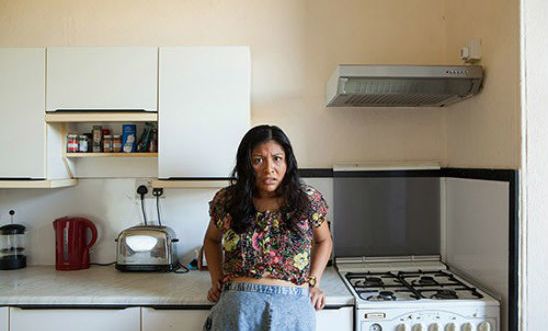
Standing on the shoulders of our suffragette sisters

Kate Nevens, Amnesty Scotland's Interim Director reflects on the work of women campaigners here in Scotland and internationally.
At Amnesty International, we campaign to end violence against women around the world and believe that violence against women is both a consequence of and a cause of women’s inequality. One in three women will experience violence in her lifetime. Her experience will deprive her of human rights, put her at risk of mental and physical health problems, and potentially trap her in poverty.
We follow the UN definition which describes violence against women as:
'any act of gender-based violence that results in, or is likely to result in, physical, sexual or psychological harm or suffering to women, including threats of such acts, coercion or arbitrary deprivation of liberty, whether occurring in public or in private life.'
Scotland has taken a giant step forward in how we define domestic abuse with the unanimous passing of the Domestic Abuse (Scotland) Bill which expands the legal definition in Scotland to include controlling, coercive and manipulative behaviour. It will allow courts to take into account the psychological harm caused to domestic abuse victims when prosecuting perpetrators of violence against women.
First Minister Nicola Sturgeon welcomed this development but gave full credit to the Scottish Women’s Aid movement “for its leadership and tireless campaigning down the years.”
The new legislation defines abusive behaviour as behaviour that is violent, threatening or intimidating as well as behaviour whose purpose is one of the following:
- making a partner dependent or subordinate;
- isolating a partner from friends, relatives or other sources of support;
- controlling, regulating or monitoring a partner's day-to-day activities;
- depriving a partner of, or restricting, freedom of action;
- frightening, humiliating, degrading or punishing a partner.
The offence is aggravated if any of the behaviour is directed at a child or witnessed by them.
The new Scottish legislation brings the understanding of domestic abuse very much in line with the UN definition, and it’s great to see that the Scottish Government will be committing some funding to training criminal justice services and the police in recognising and acting on coercive control, as well as initiating a public awareness campaign.
Huge congratulations to Scottish Women’s Aid and all the campaigners behind these bill - some of whom received a standing round of applause from the MSPs as the Bill was passed.
Of course, deep-seated discrimination and cultural norms set unequal power relations between men and women worldwide. Many basic human rights are denied to women and girls on a daily basis:
From being denied the same access to education as male contemporaries or even family members; to being forced to marry; from facing physical or mental abuse within her home to suffering health complications in childbirth, these are just some of the human rights that are routinely denied.
And whilst our campaigners for women’s rights were applauded, other women routinely face harassment and risk imprisonment for their work defending the rights of women.
At Amnesty International, we are currently campaigning on behalf of Egyptian human rights lawyer Azza Soliman who has dedicated her life to defending victims of torture, arbitrary detention, domestic abuse, and rape. The authorities have responded to Azza’s courageous work by labelling her a ‘spy’ and a ‘threat’ to national security. She has been put under surveillance, targeted by smear campaigns, and harassed by security forces and pro-government media outlets.
Azza now faces three trumped-up charges: tax evasion, operating a civil society organisation without proper registration, and slandering Egypt’s image and reputation by claiming Egyptian women are at risk of rape. Her assets have been frozen and she is banned from travelling. If found guilty, she faces imprisonment.
You can take action to demand charges against Azza are dropped and get involved in Amnesty’s work on women’s rights by joining the @Amnesty_WomenUK network
Our blogs are written by Amnesty International staff, volunteers and other interested individuals, to encourage debate around human rights issues. They do not necessarily represent the views of Amnesty International.
0 comments